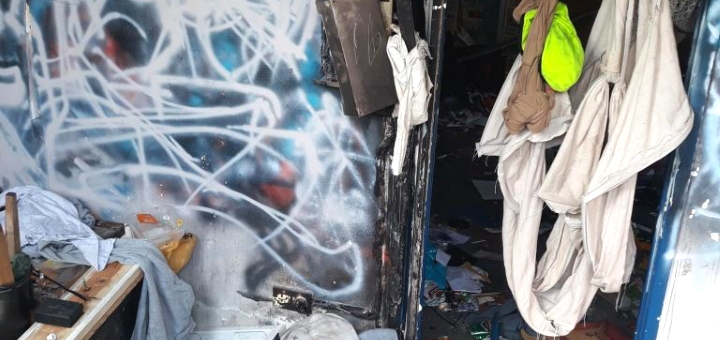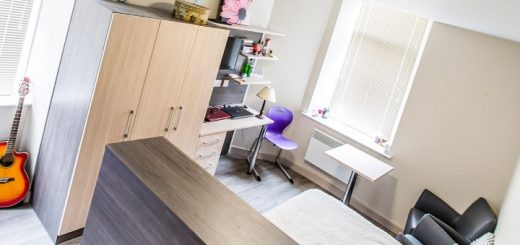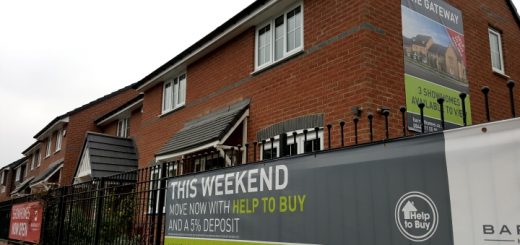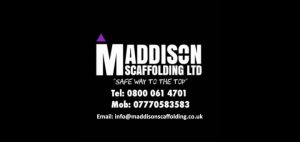Cleaning up your vacant property

If your property is stood unoccupied for any period of time it may carry an increased safety and security risk. Responsible property owners ensure their buildings are well protected and properly maintained, particularly when they’re empty.
Vacant properties that fall into neglect don’t just create safety and security issues; they can also pose a health risk and, as a property owner, you could find yourself on the wrong end of enforcement action.
In 2019, a homeowner in Bristol who abandoned his property empty, leaving it to stand neglected for seven years, was handed a fine of £7,000 for leaving his front and back gardens completely overgrown.
Despite South Gloucestershire Council issuing him with orders to maintain the property, the homeowner failed to do so, and the gardens became a magnet for fly tipping, creating an unsightly and potentially hazardous area.
Councils are now, increasingly, taking a zero-tolerance approach to allowing empty properties to have a detrimental effect on the locality.
Local authorities have a number of enforcement powers when it comes to ensuring empty properties are maintained and brought back into use as soon as possible to meet housing needs. These powers range from issuing empty dwelling management orders to, in extreme cases, granting compulsory purchase orders, to ensure that an empty property does not negatively impact on neighbouring homes and communities.
It’s no surprise then that the tax and regulatory changes imposed in recent years are having an impact on the buy-to-let market. In fact, the number of landlords in Great Britain has dropped to 2.66 million – the lowest level recorded since 2012.
Here, safety and security experts SafeSite Security Solutions highlight some of the common issues that can create concerns in empty properties. Follow their advice to ensure your empty home maintains a clean bill of health and remains a valuable asset.
Discard standing water
If there are any empty containers left lying around outside a property, they can collect falling rainwater and this can quickly stagnate. Flies, gnats and mosquitos love standing water, and, while being more of a nuisance than a major harm in this country, they can cause painful bites and carry germs.
Climate change means that conditions in the UK, particularly in the south of England, are becoming increasingly hospitable to mosquitoes. Figures from Public Health England show that calls to the NHS helpline 111 about insect bites have almost doubled and there is an increasing number of reported incidents of patients being treated in hospital for infected horsefly bites.
So, make sure you regularly pour away any rainwater that collects outside – it’s good for the garden and your neighbours’ health.
Cut back undergrowth
Don’t let your empty property get taken over by garden growth, especially during the warmer spring and summer months which accelerate growth and decay. Overgrown gardens can create a natural habitat for vermin and become a target for fly tippers to conceal their rubbish in the dense undergrowth – causing an additional headache when it comes to waste removal as we’ve already heard above.
If left untended, you may also run the risk of invasive plants, such as Japanese knotweed and bamboo, taking hold and rapidly spreading. It is now a criminal offence in the UK, under the Wildlife & Countryside Act 1981, to let Japanese knotweed knowingly grow.
Get rid of rubbish
Discarded rubbish can carry health risks. Food waste will attract foxes and rats, which will in turn create their own waste. Animals may also be encouraged to try and enter the empty property, causing chaos inside if they are successful.
Leaving rubbish lying around can present a danger to anyone working in the property or its grounds. It also sends a signal that the area is not being looked after; an open invitation to squatters.
Troublesome tenants
Squatting in residential buildings is now a criminal offence. Illegal or unruly tenants can cause homes to fall into disrepair and leave behind harmful waste and damage. Dangerous and hazardous waste, such as infectious drug paraphernalia and human waste, must be safely and properly cleared away. If it is not, it can make it impossible to re-let or sell a property.
Any kind of domestic and commercial waste should always be responsibly and ethically disposed of. A professional cleaning and clearance company will be able to ensure the safe removal and disposal of any hazardous waste and sanitisation after squatters or disorderly tenants.
If your empty property could benefit from a clean-up, contact the team at SafeSite Security Solutions for friendly advice and a free, no obligation quotation.









